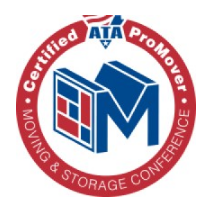Tipping Movers: Percentages, Factors & FAQs Answered

Moving day can be a whirlwind of emotions and logistics. Amidst the chaos, one question often lingers: how much should you tip your movers?
It’s a common dilemma, as tipping practices in the moving industry can vary widely. Factors like move complexity, service quality, and your personal budget all play a role in this decision.
Understanding the details of mover tipping etiquette is key to ensuring a positive experience and expressing gratitude for their efforts. From percentage-based guidelines to hourly rates, there are various approaches to rewarding exceptional service during your relocation.
By exploring these options, you’ll be empowered to make informed decisions that balance generosity with your financial situation.
Remember, your movers play a crucial role in easing your transition to a new home. Properly understanding tipping allows you to acknowledge their efforts appropriately, creating a positive experience for everyone involved.
The Importance Of Tipping Movers
Tipping movers plays a crucial role in the relocation industry, impacting both service providers and clients alike. Understanding its importance helps create a positive moving experience and fosters a culture of appreciation for hard work.
Role Of Tips In The Moving Industry
Tips serve as a powerful motivator in the moving industry, promoting exceptional service and cultivating a positive work environment. They act as a direct feedback mechanism, allowing customers to express satisfaction with the movers’ performance.
- Encourages high-quality service
- Provides immediate feedback
- Fosters a positive work culture
This practice helps maintain high standards within the industry, as movers strive to earn recognition for their efforts.
How Tips Supplement Movers’ Income
For many movers, tips constitute a significant portion of their overall earnings, supplementing their base wages. The physical demands and irregular hours of the job often aren’t fully compensated by standard pay rates alone.
Tips help bridge this gap by:
- Providing additional income
- Reflecting the value of hard work
- Compensating for challenging aspects of the job
Impact Of Tips On Service Quality
Tips have a direct influence on the quality of service provided by movers. When movers anticipate fair tipping, they’re more likely to go above and beyond in their duties. This can translate to:
- Greater care in handling belongings
- Increased efficiency in completing the move
- A more positive attitude throughout the process
The prospect of tips encourages movers to maintain high standards of professionalism and customer service. By recognizing and rewarding exceptional work, tipping helps ensure a smoother, more pleasant moving experience for everyone involved.
Factors Influencing Tip Amounts
When deciding how much to tip your movers, several key factors come into play. By understanding these elements, you’ll be better equipped to determine a fair and appropriate gratuity that reflects the effort and quality of service provided during your move.
Move Complexity And Duration
The complexity and duration of your move significantly impact the tip amount. Consider the following:
- Longer moves requiring more time to relocate typically warrant higher tips.
- Multi-story homes, narrow staircases, or long distances from the truck to your residence increase the move’s difficulty.
- These challenging aspects may justify a more generous gratuity.
Quality Of Service Provided
The overall quality of service is crucial in determining tip amounts. Evaluate your movers based on:
- Professionalism and efficiency
- Positive attitude throughout the move
- Effective communication
- Punctuality
- Ability to handle unexpected challenges
Movers who excel in these areas often deserve higher tips as a recognition of their exceptional service.
Handling Of Fragile Or Valuable Items
Special care given to fragile or valuable items merits recognition in your tipping decision. Consider increasing your tip if the movers:
- Take extra precautions with delicate belongings like artwork, antiques, or electronics
- Demonstrate a higher level of skill and attentiveness
- Successfully transport valuable items without damage
This careful handling often justifies a more substantial tip to acknowledge their expertise and diligence.
Weather Conditions And Obstacles
Adverse weather conditions or unexpected obstacles can make a move more challenging. Factors to consider include:
- Movers maintaining professionalism and efficiency despite rain or extreme heat
- Ability to adapt to unforeseen difficulties
- Overcoming challenging circumstances without complaint
Their ability to handle challenges and adjust in these situations is commendable and may warrant additional consideration when tipping.
Additional Services Performed
Any extra services provided by the movers should factor into your tipping decision. These may include:
- Disassembling and reassembling furniture
- Packing last-minute items
- Offering helpful advice during the move
- Assisting with tasks beyond their standard duties
Recognizing these additional efforts through your tip shows appreciation for their willingness to go above and beyond, enhancing your overall moving experience.
Standard Tipping Guidelines
Exploring mover tipping can be challenging, but understanding standard guidelines can help you make informed decisions. These recommendations provide a framework for tipping, which you can adjust based on your specific circumstances and the quality of service received.
Percentage-Based Tipping
Percentage-based tipping is a common approach that scales with the total cost of your move. This method ensures your tip reflects the overall scope and complexity of the relocation.
- Short-Distance Moves: For local or short-distance moves, consider tipping 15-20% of the total moving cost. This range allows you to adjust based on the quality of service and any additional challenges the movers faced during your relocation.
- Long-Distance Moves: When moving long-distance, the tipping calculation may differ slightly. A range of 10-15% of the total cost is generally appropriate, given the extended duration and complexity of these moves.
Factor in the level of care provided for your belongings over the long journey when deciding on the final percentage.
Hourly Rate Tipping
For moves billed by the hour, consider tipping $4-$5 per hour per mover. This method directly correlates the tip to the time and effort expended by each team member. Adjust this rate based on exceptional service or particularly challenging moving conditions.
Flat Rate Tipping For Full-Day Moves
When your move spans an entire day, a flat rate tip can be appropriate. Consider $20-$40 per mover for a full day’s work. This approach simplifies the tipping process while still acknowledging the extensive effort involved in a day-long move.
Minimum Tip Recommendations
Even for smaller moves, it’s considerate to provide a minimum tip to show appreciation for the movers’ efforts. A good rule of thumb is to tip at least $20 per mover for any move, regardless of its size or duration. This baseline ensures that your movers feel valued for their work, even on shorter or less complex relocations.
Remember, these guidelines are flexible. You should always consider the quality of service, any exceptional circumstances, and your personal budget when determining the final tip amount.
When And How To Tip Movers
Understanding the proper timing and methods for tipping movers can help you approach this aspect of relocation with confidence. Let’s explore some guidelines to ensure your appreciation is conveyed effectively and appropriately.
Timing: End Of Move Vs. Incremental Tipping
The timing of your tip often depends on the duration and nature of your move. For single-day relocations, it’s typically best to wait until the end of the service. This approach allows you to assess the overall quality of work before determining the tip amount.
Longer moves may benefit from incremental tipping. Consider these options:
- Provide a portion of the tip at the end of each day
- Reserve a larger portion for the final day
- This strategy recognizes ongoing effort and can motivate continued excellent service
Cash Vs. Digital Payment Methods
Cash remains the gold standard for tipping movers. It offers several advantages:
- Immediate gratitude
- Convenience
- Easy distribution among team members
- Avoids potential complications with company policies
If cash isn’t an option, check with the moving company about their policies on digital tipping methods. Some may allow tips through credit card payments or digital wallet services, offering flexibility in showing your appreciation.
Individual Tipping Vs. Team Tipping
Tipping each mover individually is generally the preferred approach. This method:
- Ensures each worker receives recognition for their specific efforts
- Allows you to adjust tip amounts based on individual performance
- Recognizes standout service from particular team members
If you opt for a single team tip, clearly communicate to the team leader that the amount is intended to be shared among all workers. This helps ensure fair distribution and recognition of the collective effort.
Tipping Etiquette For Multiple-Day Moves
For moves spanning multiple days, consider a combination of daily and end-of-move tipping:
- Provide a modest tip at the end of each day
- Reserve a larger portion for the end of the move
This approach acknowledges daily work, maintains motivation, and allows for a final assessment of the overall service quality. Communicate your intention to provide an end-of-move tip to the team. This transparency can help maintain high-quality service throughout the duration of a longer move.
Alternative Ways To Show Appreciation
While tipping is a common way to show gratitude, there are other meaningful methods to express appreciation for your movers’ hard work. These alternatives can complement monetary tips or serve as standalone gestures of thanks, enhancing the overall moving experience for both you and the moving team.
Providing Refreshments And Meals
Offering refreshments and meals is a thoughtful way to support your movers during their physically demanding work. Consider these ideas:
- Keep a cooler stocked with water bottles, sports drinks, and light snacks easily accessible throughout the moving process.
- For longer moves, provide a meal such as pizza, sandwiches, or other easily shared foods that don’t require extensive preparation or cleanup.
Remember to ask about any dietary restrictions or preferences beforehand to ensure everyone can partake. This gesture not only shows appreciation but also helps maintain the movers’ energy levels, potentially improving efficiency and morale during the move.
Writing Positive Reviews
Taking the time to write a detailed, positive review can significantly impact a moving company’s reputation and future business. Here’s how to make your review most effective:
- Share your experience on popular review platforms, the company’s website, or social media channels.
- Focus on specific aspects of the service that impressed you, such as punctuality, care in handling items, or exceptional problem-solving skills displayed by the movers.
- Mention standout employees by name if possible, as this can lead to recognition within their company.
Your honest feedback not only shows appreciation but also helps other potential customers make informed decisions about their moving services.
Recommending Services To Others
Word-of-mouth recommendations are invaluable in the service industry. If you’re satisfied with your moving experience, consider these ways to spread the word:
- Recommend the company to friends, family, or colleagues who may be planning a move.
- Share your positive experience on social media or community forums where people often seek recommendations for reliable moving services.
- Offer to be a reference for the moving company if they have a referral program.
Some companies may even provide incentives for successful referrals, creating a win-win situation where your appreciation translates into tangible benefits for both you and the movers.
Special Considerations
Moving involves various scenarios that may influence your tipping decisions. Understanding these special considerations can help you address unique situations and ensure fair compensation for services rendered.
Tipping For Packing Services
When movers provide packing services, it’s appropriate to consider an additional tip for this labor-intensive task. Packing requires skill and care to ensure your belongings are protected during transit.
- For professional packing, consider increasing your tip by 5-10% of the packing service cost or an extra $2-3 per hour per packer
- If you’re handling your own packing, following expert moving packing tips can streamline the process and potentially reduce the overall moving time.
Efficient packing on your part allows movers to focus on transportation, potentially leading to a smoother move deserving of recognition.
Adjusting Tips For Exceptional Service
Exceptional service warrants additional appreciation. If your movers go above and beyond, consider increasing your tip.
- Add 5-10% on top of your planned tip amount or an extra $10-20 per mover for outstanding service.
- Recognize intangible aspects like clear communication, problem-solving skills, and willingness to accommodate last-minute requests.
These qualities can significantly enhance your moving experience and deserve acknowledgment.
Handling Poor Service Situations
While tipping is customary, it’s not mandatory, especially in cases of poor service. If you encounter issues such as damaged items, significant delays without explanation, or unprofessional behavior, it’s reasonable to adjust your tip accordingly.
- Try to communicate your concerns with the crew leader or company representative first.
- If withholding a tip, consider providing specific feedback to the moving company.
This approach helps the company improve their services and addresses your concerns more constructively.
Tipping During Peak Moving Seasons
Peak moving seasons, typically during summer months or at the beginning and end of each month, often come with higher rates and busier schedules for movers.
- Tipping expectations generally remain consistent despite higher base costs.
- Consider the increased demand and potential for longer hours or more challenging conditions.
A slightly more generous tip during these busy periods can be a welcome acknowledgment of movers’ hard work under challenging circumstances.
Remember, during peak seasons, movers might be handling multiple jobs in a day, potentially under hot or stressful conditions.
Budgeting For Mover Tips
Planning for mover tips is an essential part of your overall moving budget. By factoring in these additional costs early, you can ensure fair compensation for your movers without straining your finances.
Incorporating Tips Into Moving Costs
When calculating your moving expenses, allocate a portion specifically for tips. A good rule of thumb is to set aside 5-10% of your total moving cost for tipping.
- For example, if your move costs $1,000, budget $50-$100 for tips.
- Consider creating a separate envelope or digital fund for tips to keep this money readily available on moving day.
This approach helps prevent last-minute scrambling and ensures you’re prepared to show appreciation for good service.
Balancing Generosity With Personal Finances
While it’s important to recognize good service, it’s equally crucial to stay within your means. Start by determining your overall moving budget and then decide what percentage you can comfortably allocate for tips.
Remember, even a modest tip, when given sincerely, can be meaningful to your movers. If your budget is tight, consider alternative ways to show appreciation:
- Providing refreshments during the move
- Writing a positive review online
- Offering a sincere verbal thank you
These gestures can complement a smaller tip and still convey your gratitude effectively.
When budgeting, factor in the complexity of your move. Moves involving many stairs, long distances, or bulky items might warrant a larger tip, so plan accordingly. Conversely, for simpler moves, you might allocate a smaller portion of your budget to tips.
Lastly, remember that tipping is not mandatory but a way to reward good service. If you’re facing financial constraints, focus on providing a reasonable tip that aligns with your budget rather than straining your finances. Your movers will appreciate any show of gratitude, regardless of the amount.
Cultural And Regional Variations In Tipping Practices
Tipping practices for movers can vary significantly depending on location and cultural norms. Understanding these differences is crucial for both customers and moving experts to manage expectations and ensure fair compensation.
Urban Vs. Rural Tipping Expectations
In urban areas, tipping expectations often call for higher amounts due to increased living costs and competitive service industries. City dwellers might typically tip:
- 15-20% of the total moving cost
- $20-$30 per mover for a day’s work
Rural areas may have more modest tipping customs.
- 10-15% of the total cost
- $10-$20 per mover
Urban moves often involve additional challenges such as traversing busy streets, addressing parking limitations, or transporting items across multiple floors. These factors can influence tipping decisions, with customers often providing larger tips to acknowledge the extra effort.
Rural moves might present different challenges, such as long distances between locations, which customers may consider when determining tip amounts.
International Moving And Tipping Customs
Tipping practices can vary dramatically across countries, reflecting diverse cultural attitudes about service industry compensation. In some European countries, tipping movers is less common, as service charges are often included in the overall price.
For instance, in Japan, tipping is generally not expected and can even be considered rude in some situations. Conversely, in the United States and Canada, tipping movers is a common practice and often expected for good service.
When dealing with international moves, it’s advisable to consult with the moving company about local tipping etiquette. Some countries may have specific customs around expressing gratitude that don’t involve monetary tips. In these cases, alternative ways to show appreciation include:
- Offering refreshments
- Writing a thank-you note
- Providing a positive review
Understanding and respecting these cultural differences can help ensure a positive experience for both the customer and the moving team. Remember, research is crucial for international moves and understanding tipping customs.
Frequently Asked Questions
- Is it mandatory to tip movers?
Tipping movers isn’t mandatory, but it’s a common practice to show appreciation for good service. While movers don’t expect tips, they generally welcome them as recognition for their hard work, especially during challenging moves.
- Should I tip movers if there’s a “no tipping” policy?
When a moving company has a strict “no tipping” policy, it’s best to respect their rules. In such situations, consider alternative ways to show your appreciation:
- Provide refreshments during the move
- Write a positive review online
- Send a thank-you note to the company
Tipping movers isn’t mandatory, but it’s a common practice to show appreciation for good service. While movers don’t expect tips, they generally welcome them as recognition for their hard work, especially during challenging moves.
When using a moving broker, direct your tips to the actual movers who perform the service, not the broker. To ensure you’re prepared on moving day:
- Ask the broker about tipping policies in advance
- Clarify if the movers are employed by the broker or a separate company
- Have cash on hand for tipping, if appropriate
- Can I tip movers with a credit card?
Cash is the preferred method for tipping movers because it’s immediate and doesn’t involve additional processing. However, if you prefer using a credit card:
- Check with the moving company in advance
- Ask if they can add a tip to your final bill
- Be prepared with a cash alternative if credit card tipping isn’t possible
- What if I can’t afford to tip the recommended amount?
If the recommended tip amount is beyond your budget, don’t worry. Give what you can comfortably manage. Remember, showing appreciation doesn’t always require a large sum:
- Offer a smaller tip within your means
- Combine it with sincere verbal appreciation
- Provide refreshments or snacks during the move
Even a modest gesture can go a long way in acknowledging the movers’ efforts and making them feel valued for their hard work.
Conclusion
Tipping movers is a nuanced decision that involves weighing several key factors. The complexity of your move, the quality of service provided, and your personal budget all play crucial roles in determining an appropriate gratuity.
While not mandatory, offering a tip acknowledges the physical demands and expertise required to safely transport your belongings. It’s a gesture that can significantly impact the movers’ job satisfaction and livelihood.
The guidelines we’ve explored serve as a flexible framework, easily adaptable to your unique moving experience and financial circumstances. Remember, there’s no one-size-fits-all approach to tipping movers.
Expressing appreciation doesn’t always have to be monetary. Alternative gestures, such as providing refreshments or writing positive reviews, can also convey your gratitude effectively.
Ultimately, your tipping decision should strike a balance between recognizing exceptional service and maintaining your financial comfort. By considering the factors we’ve discussed, you’ll be well-prepared to approach this aspect of your move with confidence and care.
Related Articles
Moving Out Soon? Your Guide to Start Saving Today

Moving out is a thrilling milestone that brings both excitement and financial challenges. Proper preparation and strategic saving are crucial for a smooth transition to independent living, requiring more than just accumulating a lump sum. Beginning this process requires a thorough approach, from evaluating your current financial circumstances to preparing for lasting stability. By implementing […]
Read MoreFirst Time Moving Out? Your Essential Checklist & Guide

Stepping out on your own for the first time is a thrilling adventure that marks the beginning of true independence. It’s a journey filled with excitement, but it also comes with its fair share of challenges that require thoughtful preparation and planning. Moving from your family home to your own space involves more than just […]
Read More




